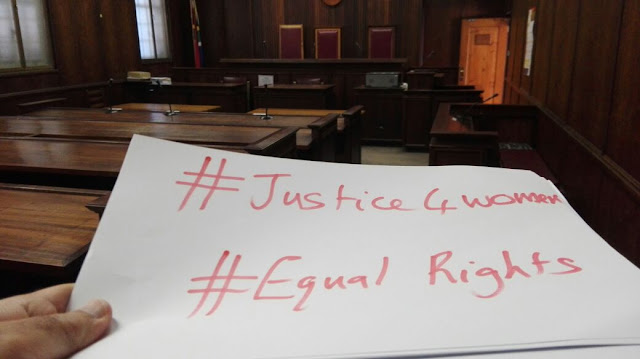Why Sustaining the Student Protests is Important by C. Peter.
TUESDAY, 27 OCTOBER 2015
Why Sustaining the Student Protests is Important!
The momentous events of the past two weeks in South Africa do not guarantee that any significant and lasting changes will be achieved, unless students are able to put their principles before personal interests. This is the unfortunate fact of struggle against oppression. It involves sacrifice, and there is no way around that.
No significant political struggle is easy, because bringing about change requires sustained effort against established and entrenched systems and bureaucracies that resist change, and absorb pressures without substantially changing their essential DNA. They are remarkably resilient to small, incremental changes, and quickly bounce back even more strongly when they are subjected to fickle pressures.
While it is understandable that many staff and students will be concerned about postponing the academic curriculum – and examinations in particular – the partial victory that students have obtained is unlikely to lead to the sea changes in the education system as a whole, which the majority of the poor in South Africa have waited on for the past 21 years.
At risk is the loss of semester in the lives of student body and academic staff. Many are in rush to complete the year, so that their lives aren’t put on hold, and they do not have to endure sacrifices that will impact their lives. There is that scholarship to hold on to, there is that job waiting, there is a postgraduate degree to embark upon … that’s all quite understandable. However, when you focus on partial, short-term gains you often lose perspective on the long term goals of struggle, and the ability to see them through.
There is a long history of struggle in South Africa, and there are plentiful resources to draw upon to understand what it takes to bring about meaningful change in systems that resist them fiercely, and when forced to act end up appropriating change on their own terms. This results in a thinly disguised perpetuation of the same basic system – i.e. cosmetic changes in language, jargon and appearance – but no substantive change, no fundamental change in the role and functions of the institution and its bureaucracy.
The bureaucracies and institutional arrangements that sustain and perpetuate the old order rarely change as a result of partial, short-term victories. Sustained and concerted effort is required to change systems. The idea that you can bring about substantive change by embracing the system and working with it, instead of resisting it and exerting pressure upon its functions, is misplaced.
In order to shift a long-standing bureaucratic system into a new state, where its useful functions are maintained, but it is fundamentally transformed in relation to its past (i.e. without all-out complete revolution where the system is dismantled entirely), the rhythms of the bureaucracy need to be disrupted. Simply put, ‘business-as-usual’, if allowed to continue uninterrupted, results in weak, cosmetic change, instead of an evolution into a wholly new modality where the services and functions performed by the bureaucracy are fundamentally transformed.
That is why it is important for the students to maintain their demand that government and institutions of higher education commit to their third demand – i.e. free and fair education in their lifetimes – and to refuse to service the requirements of the bureaucracy until a political commitment is announced. It is not important to address all the questions of how it will be achieved at this stage. What is important is to make the political commitment and establish timelines for achieving it.
Because South Africa is governed by a ruling party with an overwhelming majority it is possible to make such a political commitment by both the government and the state. The ANC now needs to commit clearly to the central demand of a generation for whose freedom it struggled. It is a powerful opportunity for leaders to fundamentally reset the trajectory of the democratic dispensation, and ensure that equality – as a central principle – is serviced by the state and its key institutions.
Real revolutions require endurance; they are marathons. In order for hashtag revolutions to amount to more than brief moments of instant gratification, it is important to organise and mobilise against the key institutions and bureaucracies that are required to transform their essential roles in society by disrupting them. Simply going along with systems that have successfully resisted change for many generations, and are incredibly resilient to the pressures that are brought to bear on them, merely results in more of the same.
You can’t work within the system in order to change it; you have to disrupt it strategically by finding the key leverage points within the system that allow it to perpetuate itself. Those key leverage points are examinations, semesters, academic years and so forth. By targeting those leverage points, students can ensure that they bring about change without destroying the entire system. Yes it requires sacrifice, but it is the essential truth of life that nothing worthwhile is gained without sacrifice and persistent endeavour.
Camaren Peter at 08:08


Comments
Post a Comment